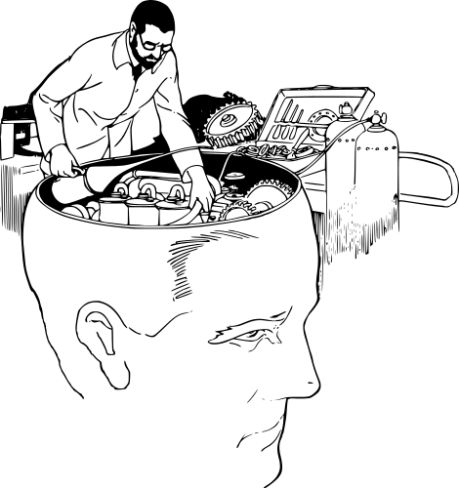
In her post “What’s Wrong with the LDS Church” Fat N’ Fitness blogger Kyli Summerhays has some things to say about misconceptions surrounding The Church of Jesus Christ of Latter-Day Saints.
While I believe the post is well-intentioned and well thought out, it had its own misconceptions about why people leave or speak out against the church. I would like to break down her thoughts here and hopefully provide some clarity and feedback for those both within and outside of the LDS Church.
“You know what I think the biggest issue with the LDS Church is?? It’s true.”
I firmly believe the LDS Church uplifts lives and can be a good moral bearing. The church does many good things all over the world, from humanitarian aid to refugee placement to advocating for immigration reform.
Whether it is objectively true, in a scientific sense of the word, is admittedly, a more difficult argument to make – but I strongly believe if it moves someone spiritually and makes them a better person they should hold to the iron rod for all it’s worth.
“When in the history of mankind has something that’s right been free from persecution? Never.”
If persecution is the metric for truth or righteousness, then the LGBT community has claim to a lot more of it than the LDS Church. Or Jewish people. Or black people. While it’s true the LDS Church has had some terrible patches of persecution – especially in its early history (being driven from homes multiple times) – both historically and in modern times, other groups have had it far worse.
Additionally, other groups have also faced persecution – from religions such as Satanism to organizations like the KKK. Are we to believe that because of their persecution they are also right and true? Many things, both good and bad, face persecution. It’s not a reliable metric for finding truth and righteousness.
“We are supposed to have moments of misery, of pain and suffering, or severe temptation. We are supposed to feel lost and confused and question the things we are being taught. We are supposed to be hard on ourselves and get jealous or defensive. That IS the perfection of this gospel.”
I can agree with most of this to one degree or another. The real problem for many, especially those who leave or speak out against the church, is that it’s not merely a matter of “moments.” And it’s not merely a matter of being lost or confused. And it’s not just a matter of being hard on yourself.
The problem is that the pain and suffering is constant – and even more pronounced at church. The problem is not that they’re lost or confused, it’s that the church instills confusion or makes them feel misled.
The problem is not that they are hard on themselves, it’s that the church has cemented in their heads expectations of what people are supposed to be – from gender roles to beauty standards to church callings – and when people don’t live up to them they face social pressure from within the church and deep, internal shame for simply being who they are instead of who they are expected to be.
“We are NOT meant to always be happy. We are not meant to always make the best choices or feel 100% great about ourselves. Guess what guys, that’s not the LDS church creating those feelings…That’s a natural consequence of life. The LDS church is just an easy place to put the blame because there are standards and they ask you to live life in a certain way. This isn’t to be controlling or to be mean. It’s for your benefit.”
What happens when the place that is supposed to be your spiritual refuge, the sole place you should be able to find peace, becomes the very place you fear most because it fills you with anxiety, depression and dread? What happens when you start wearing two faces every day out of fear and shame: The mask of conformity you wear around church members and the person you really are?
These are the situations people deal with, and their desire to find spiritual peace is what ultimately leads them to leave the church or speak up. Simply put, for these people, church is not making them a better person, it’s making them worse – and their anguish takes them to dark places.
While I do not believe that it is the church’s intention, or the intention of any member, to be “controlling or mean,” the feelings of anxiety, depression, shame, and suffering ex-Mormons and members alike experience are, without a doubt, caused by the LDS Church.
The evidence for that is clear as day: Those who have suffered within the church have spoken up about it. Some have even described their suffering as spiritual abuse – on par with verbal, emotional, and even physical abuse. Because of this, those who have suffered often speak out against what they perceive to be harmful practices and beliefs – just as someone who suffered abuse at the hands of another would do to protect others.
We do not get to decide whether they have misattributed the source of their suffering or how deep and significant their suffering is. The only thing we get to decide is whether we will listen to them, accept them as they are, and help them heal – or continue waving away their pain as “a natural consequence of life.”
“So here it goes. My testimony of The Church of Jesus Christ of Latter-Day Saints is that it’s true.”
It’s a beautiful testimony and I appreciate Kyli sharing it. I have no idea if she will ever read this post, but I wish her the best and hope that she is able to take something good away from it like I took away from hers.
I hope ex-Mormons will look at Kyli’s post and understand that there is no malice behind church leaders or members – they’re all just trying to do what they believe is good and right (isn’t everyone?).
I hope active Mormons who see my post will better understand where ex-Mormons are coming from, why they leave, and why there is sometimes lingering anger and resentment that can take years to heal.
I hope those in the middle are able to find a place they belong.
I hope we are all able to find peace, wherever it comes from.








